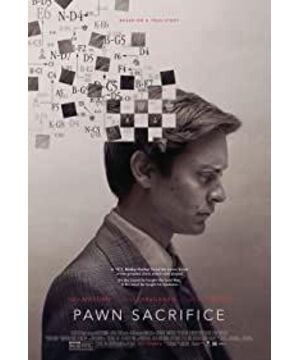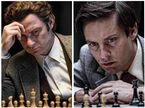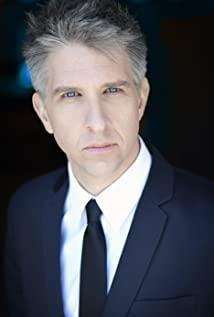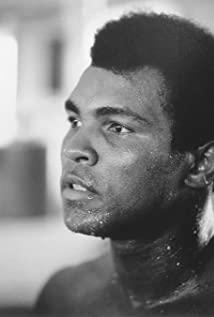Bobby Fischer era
https://www.project-syndicate.org/commentary/bobby-fischer-movie-review-by-kenneth-rogoff-2015-09/chinese
Cambridge - new Hollywood blockbuster "disposable pawn "(Pawn Sacrifice) tells the ups and downs of the chess genius "Bobby" Robert James "Bobby" Fischer, from his legendary early years to the 29-year-old and the Russian world champion in 1972 The history of Boris Spaasky (Boris Spaasky) is in it. Toby Maguire (Toby Maguire)'s performance is enough to be fake-for those of us who have witnessed Fisher's heyday, Maguire's performance can be described as a perfect interpretation.
The film tells a game that has become a landmark event between Russia and the United States during the Cold War. The film also makes us wonder whether a creative genius like Fisher, who is troublesome but can still turn into a magical magic on the chessboard, can survive in today's ruthless online world.
Fisher at that time certainly attracted people's attention, but the information filtering mechanism at that time was completely different from today. Journalists at the time led public opinion, rather than drifting along in the superficial flow of Internet information as they are today. A wandering Brooklyn kid defeated Spassky on a project called the Soviet Union's national technology. This is excellent material for reporters who are well aware of the significance of this event. This game occupies the front pages of major newspapers around the world for two months. Every day, commentators make a five-hour step-by-step analysis of the game.
At that time, there were very few TV channels. There is no DVD player and no pay-per-view service. However, this is by no means the only reason why people watch the game persistently in front of the TV. The surrealistic environment, wonderful chess approach and Cold War background made Fisher one of the most famous figures in the world that summer. I would not say humorously that it is the game analysis that attracted people's attention, even though I was the public commentator for the pivotal 13th game.
For American champion Fisher, this match is the culmination of his 20-year pursuit of a title since his debut as a prodigy. For a superstar (he even often appears on the cover of major publications), Fisher's life can be described as impoverished, and now he is finally sitting on the edge of a game worth $250,000. Of course, this is only a fraction of the $2.5 million that both parties could guarantee in the 1971 boxing battle between Ali and Frazier. But Fisher knew that in American culture, all sports that did not generate big money would be marginalized, so he regarded these six-figure cash bonuses as the ultimate sign of progress in chess.
For Russia, this match is not about money, but about care and wisdom. For a long time, chess has been the perfect battlefield to prove the superiority of the communist system. Although most Westerners now pretend that we knew that Russian-style communism would fail sooner or later, it was definitely not the case at the time. At that time, the most popular introduction to economics textbook, Nobel Prize winner Paul Samuelson's "Economics", still predicted that Russia might surpass the United States to become the world's largest economy. In all fairness, the Russians value chess very much, even if it does not bring much income. From many perspectives, chess is Russia's national skill. Not surprisingly, Fisher’s Don Quixote-style move to pursue the world chess championship alarmed Henry Kissinger, the American policy think tank. Kissinger called Fisher and urged him not to quit (he once threatened to quit ).
Regardless of his status in the United States, Fisher is definitely the most loved American by Russians. Ordinary Russians can appreciate and understand the inherent beauty of chess, and Fisher's chess skills are enough to defeat Russian propaganda. On the way to win the championship, Fisher swept two formidable opponents with an unheard 6-0 score before. This was annoying when many Grand Masters ended in a tie. Russian chess fans were thrilled by Fisher's unprecedented achievement. It is said that the Moscow telephone line was paralyzed because they called to get relevant information. After the call comes in, you can hear the operator pick up the call, say "6 to 0", and then hang up. In the end, even Spassky became the supreme sacrifice of Fisher's talent. When Fisher won the sixth game with a brilliant hand, he applauded him with the audience. The movie This scene is also described in. Fisher may be the ultimate chess genius, and Spassky is on par with him.
Director Edward Zwick did not avoid the demons that tormented Fisher. He was not unreasonably worried that the Russians would do everything they could to prevent him from winning the championship, but in the end reasonable concerns turned into paranoia, and Fisher began to alienate relatives and friends. He became an anti-Semitic, even though he himself was a Jew.
You would suspect that in today's online world, Fisher's delusions and personality defects would ruin him before he became a world champion. Fisher stopped participating in chess competitions after becoming a champion, and his mental illness deteriorated rapidly. Although we cannot forgive Fisher for his vicious attacks and dark thoughts in his later years (he died in 2008), a person who realizes that creativity and genius is so advanced, a person who has inspired countless people through chess games, would be possible today. He ended his career long ago, which is really sad. We live in a different world. "Abandoned Pawn" recalls a world where Fisher is likely to make contributions.
View more about Pawn Sacrifice reviews











